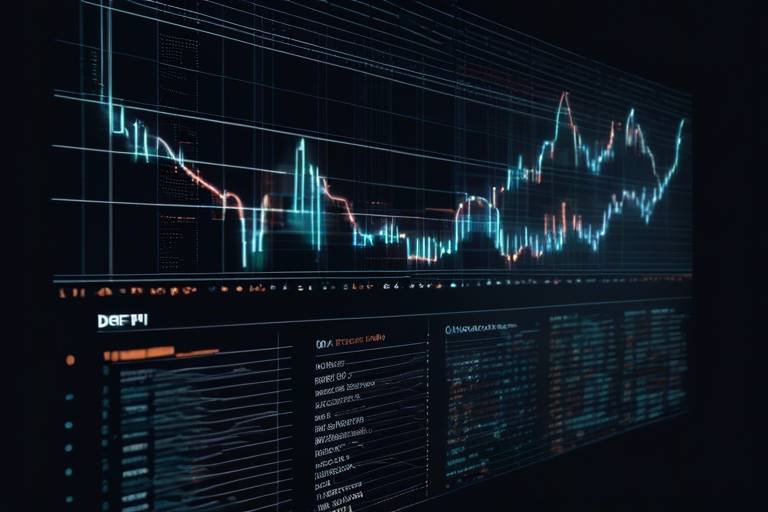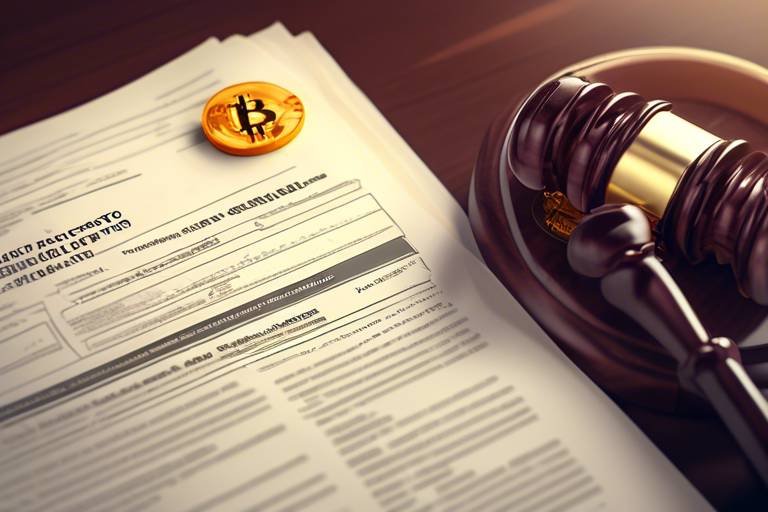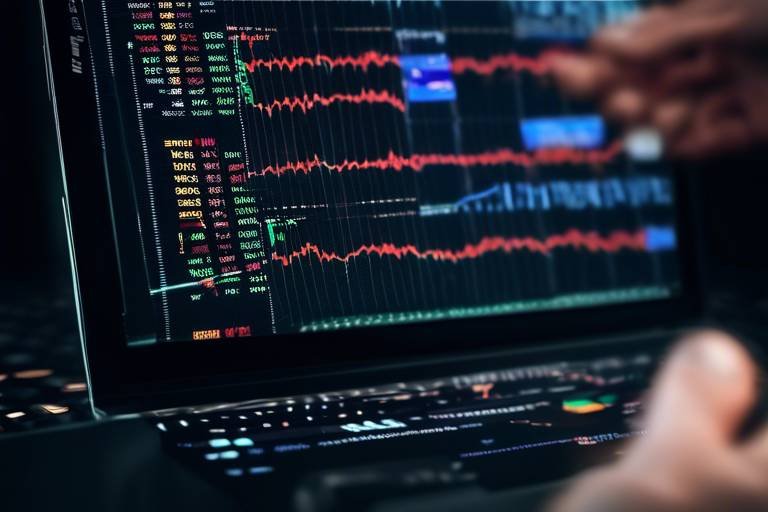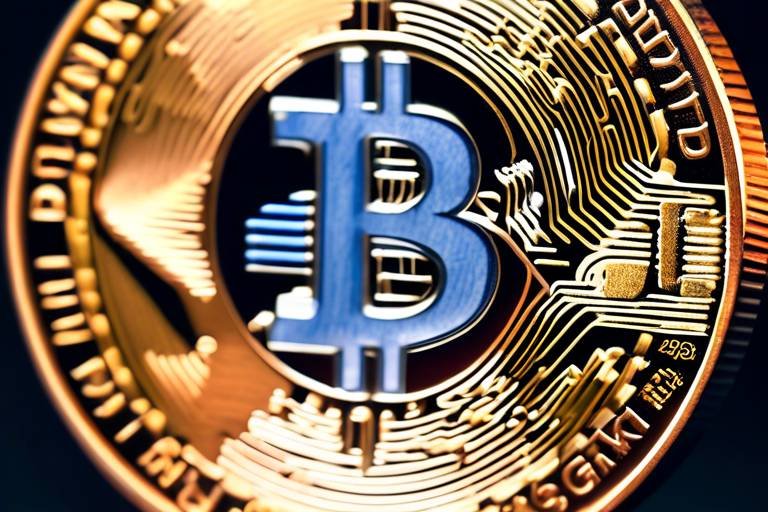The Role of Decentralized Exchanges in Market Dynamics
In the fast-paced world of cryptocurrency trading, decentralized exchanges (DEXs) have emerged as game-changers, fundamentally altering how traders interact with digital assets. Unlike traditional exchanges that operate under a central authority, DEXs facilitate peer-to-peer trading directly between users, creating a more democratic and transparent trading environment. This shift not only enhances user autonomy but also introduces a level of financial inclusivity that was previously unattainable in the financial sector.
Imagine walking into a bustling market where every stall is run by individual sellers rather than a single store. This is the essence of DEXs, where every trader has a voice and the power to make decisions without the interference of intermediaries. As we delve deeper into the significance of DEXs, it's crucial to understand their foundational principles and the myriad ways they enhance market dynamics.
At their core, decentralized exchanges operate on a set of principles that prioritize transparency, security, and freedom. By leveraging blockchain technology, DEXs eliminate the need for a central authority, allowing users to trade directly with one another. This not only reduces the risks associated with centralized platforms, such as hacking and fraud, but also empowers users to maintain full control over their funds. Unlike traditional exchanges, where your assets are held in custodial wallets, DEXs utilize non-custodial wallets, ensuring that users are the sole guardians of their cryptocurrencies.
Furthermore, DEXs offer a diverse range of trading pairs, often surpassing the offerings of centralized exchanges. This increased variety not only attracts more traders but also enhances overall market efficiency. By providing a platform where users can freely exchange a multitude of cryptocurrencies, DEXs contribute to a more dynamic and competitive market landscape.
The rise of decentralized exchanges is not merely a trend; it's a revolution that brings forth numerous benefits for traders and investors alike. One of the most significant advantages is the enhanced security that DEXs provide. With the integration of smart contracts and non-custodial wallets, users can trade in a safer environment, minimizing the risks often associated with centralized platforms.
When it comes to security, DEXs have implemented robust measures that give users peace of mind. For instance, smart contracts play a pivotal role in automating transactions, which not only streamlines the trading process but also reduces the chances of fraud. These self-executing contracts operate based on predefined conditions, ensuring that transactions are executed accurately and securely.
Smart contracts are like digital vending machines; they dispense the agreed-upon assets automatically once the conditions are met. This trustless system eliminates the need for a middleman, allowing users to engage in transactions with confidence. By automating the trading process, smart contracts also reduce human error, making DEXs a more reliable option for traders.
In addition to smart contracts, the use of non-custodial wallets is a game-changer for security. With these wallets, users retain complete control over their assets, meaning they don't have to worry about a third party mishandling their funds. This level of control is crucial in a landscape where trust can often be an issue.
Another compelling aspect of decentralized exchanges is their contribution to market efficiency and liquidity. By offering a wider array of trading pairs and fostering a competitive environment, DEXs help reduce price manipulation and enhance the overall trading experience. The increased liquidity on these platforms allows for quicker trade executions and more stable prices, making DEXs an attractive option for both novice and experienced traders.
Despite their numerous advantages, decentralized exchanges are not without their challenges. One of the most pressing issues is liquidity, which can significantly impact trade execution and price stability. Lower liquidity on DEXs compared to centralized exchanges can lead to slippage, where the price of an asset changes unfavorably between the time an order is placed and when it is executed.
Liquidity is a critical factor in the success of any exchange, and DEXs often struggle to attract enough volume to ensure smooth trading. Factors such as market awareness, user experience, and promotional efforts play a significant role in addressing this issue. The more users that flock to DEXs, the better the liquidity becomes, creating a positive feedback loop that can lead to sustained growth.
As the popularity of decentralized exchanges continues to rise, they are increasingly under the microscope of regulatory bodies. This scrutiny can lead to uncertainty and may impact user experience. While regulations aim to protect users, they can also stifle innovation and limit the freedom that DEXs currently offer. Striking a balance between regulation and decentralization will be crucial for the future of these exchanges.
- What are decentralized exchanges? DEXs are platforms that allow users to trade cryptocurrencies directly with one another without a central authority.
- How do DEXs ensure security? DEXs use smart contracts and non-custodial wallets to enhance security and give users control over their funds.
- What are the main challenges faced by DEXs? Liquidity and regulatory scrutiny are two significant challenges that decentralized exchanges encounter.
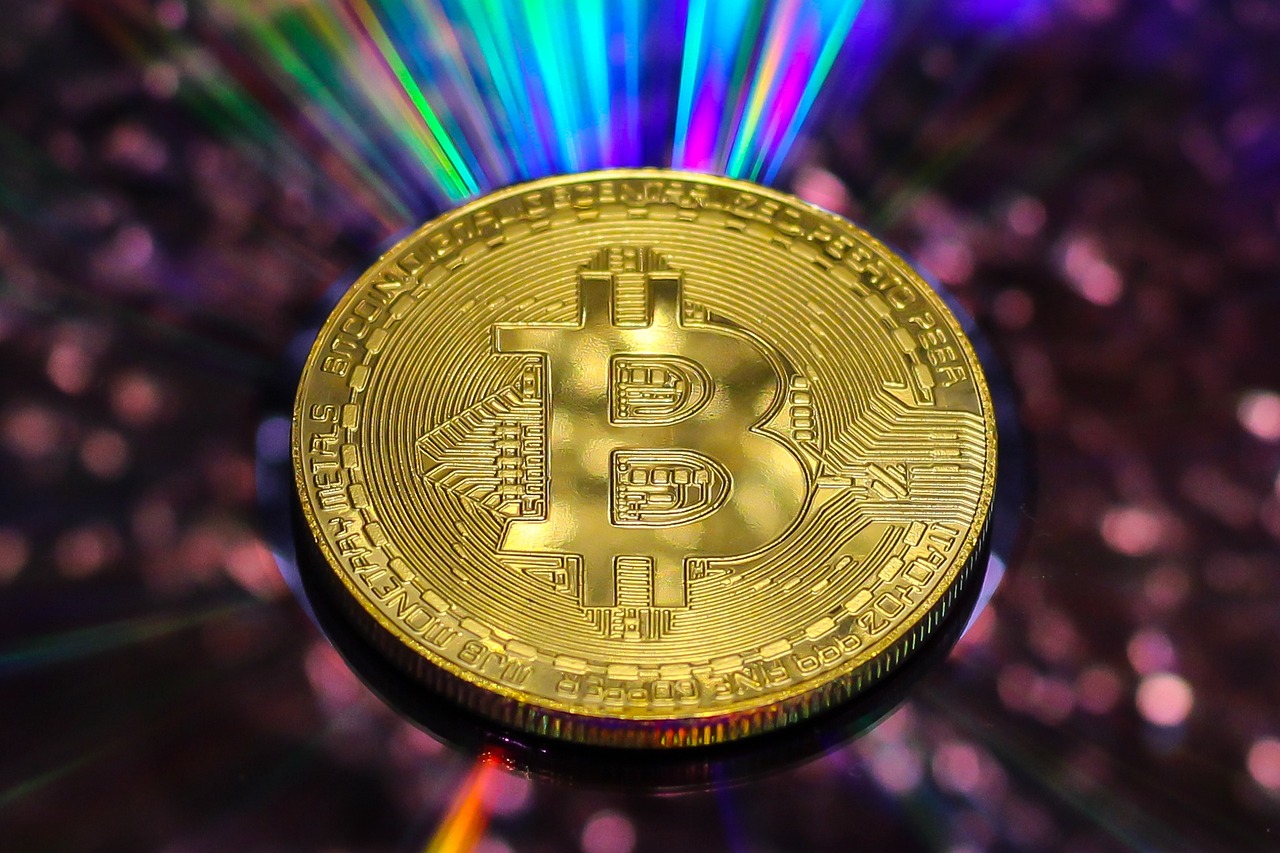
Understanding Decentralized Exchanges
Decentralized exchanges, or DEXs, represent a revolutionary shift in the cryptocurrency trading landscape. Unlike traditional exchanges that are governed by a central authority, DEXs operate on a peer-to-peer basis, allowing users to trade directly with one another. This fundamental difference is akin to the difference between a bustling marketplace where vendors set up their stalls and a corporate store that dictates prices and availability. In a DEX, you have the autonomy to trade without intermediaries, which is a game changer in the world of finance.
At the heart of DEXs lies the principle of decentralization. This means that no single entity controls the exchange, which significantly reduces the risks associated with hacks and fraud that often plague centralized platforms. Instead of entrusting your funds to a third party, you maintain control over your assets through non-custodial wallets. This is similar to having your own safe at home rather than storing your valuables in a bank, where they could be vulnerable to theft or mismanagement.
Moreover, DEXs utilize blockchain technology to facilitate transactions. Each trade is recorded on a public ledger, ensuring transparency and traceability. This openness not only builds trust among users but also fosters a sense of community, as traders can see all transactions and verify the integrity of the exchange. Imagine being in a room full of people where everyone can see the trades happening in real-time—this creates a dynamic and engaging trading environment.
Another critical aspect of DEXs is their ability to offer a wider variety of trading pairs. Unlike traditional exchanges that may limit users to a handful of popular cryptocurrencies, DEXs often support a myriad of tokens. This diversity allows traders to explore new opportunities and invest in lesser-known projects, potentially leading to greater returns. However, it also means that users need to conduct thorough research to make informed decisions, as not all tokens are created equal.
In summary, decentralized exchanges are redefining how we think about trading in the cryptocurrency space. By eliminating intermediaries, enhancing security, and providing greater access to a variety of assets, DEXs empower users like never before. As we continue to navigate this digital frontier, understanding the mechanics and benefits of DEXs is crucial for anyone looking to engage in cryptocurrency trading.
- What is a decentralized exchange? A decentralized exchange is a platform that allows users to trade cryptocurrencies directly with one another, without the need for a central authority.
- How do DEXs ensure security? DEXs utilize smart contracts and non-custodial wallets, which give users control over their funds and reduce the risk of hacks.
- Can I trade any cryptocurrency on a DEX? Many DEXs support a wide range of tokens, but the availability of specific cryptocurrencies can vary by platform.
- Are there fees associated with using DEXs? While DEXs typically have lower fees than centralized exchanges, users may still incur transaction fees related to blockchain operations.

Benefits of Using DEXs
Decentralized exchanges (DEXs) have emerged as a revolutionary force in the world of cryptocurrency trading, offering a plethora of benefits that cater to the needs of modern traders and investors. One of the most compelling advantages of using DEXs is the enhanced security they provide. Unlike traditional exchanges that hold users' funds in centralized wallets, DEXs operate on a peer-to-peer basis, meaning that users retain full control over their assets. This minimizes the risk of hacks and theft, which have plagued many centralized platforms over the years. Imagine having a bank vault where only you hold the key; that’s the level of security DEXs offer.
Another significant benefit is the privacy DEXs afford their users. In an age where data breaches and privacy scandals are rampant, many users are concerned about sharing their personal information. DEXs typically require minimal personal information to trade, allowing users to transact without the fear of their data being misused. This level of privacy can be likened to shopping in a local market where no one knows what you’re buying, as opposed to an online store that tracks your every move.
Moreover, DEXs empower users with greater control over their funds. In a centralized exchange, users must trust the platform to manage their assets securely, which can lead to anxiety and uncertainty. With DEXs, users interact directly with the blockchain, and their funds remain in their wallets until a trade is executed. This non-custodial model means that users are not at the mercy of a third party, enhancing their overall trading experience.
In terms of market efficiency, DEXs introduce a wider array of trading pairs compared to their centralized counterparts. This diversity allows traders to find the best prices and execute trades more seamlessly. Furthermore, because DEXs operate on an open-source model, they are less susceptible to price manipulation, which is a common issue in centralized exchanges. By promoting a more transparent trading environment, DEXs contribute to a healthier and more efficient market.
To sum up, the benefits of using decentralized exchanges are manifold:
- Enhanced Security: Users retain control over their funds, reducing the risk of hacks.
- Privacy: Minimal personal information required for trading.
- Greater Control: Users manage their own assets without third-party interference.
- Market Efficiency: A wider range of trading pairs and reduced price manipulation.
As the cryptocurrency landscape continues to evolve, the advantages of DEXs are becoming increasingly apparent. They are not just a passing trend; they represent a fundamental shift in how we think about trading and ownership in the digital age.
1. What is a decentralized exchange (DEX)?
A DEX is a platform that allows users to trade cryptocurrencies directly with one another without the need for a central authority. This peer-to-peer trading model enhances security and privacy.
2. How do DEXs ensure security?
DEXs utilize smart contracts and non-custodial wallets, which means users maintain control over their assets and execute trades directly on the blockchain, minimizing the risks associated with centralized platforms.
3. Are DEXs easy to use for beginners?
While DEXs may have a steeper learning curve compared to centralized exchanges, many platforms are working to improve user interfaces and provide educational resources to help newcomers navigate the space.
4. What are the risks associated with using DEXs?
Some risks include lower liquidity, which can affect trade execution and price stability, as well as the potential for smart contract vulnerabilities. It’s essential for users to conduct thorough research before trading.
5. Can I trade any cryptocurrency on a DEX?
While DEXs offer a broader range of trading pairs, not all cryptocurrencies may be available. It’s best to check the specific DEX for the assets you wish to trade.

Security Features
When it comes to cryptocurrency trading, security is paramount. Decentralized exchanges (DEXs) are designed with robust security features that set them apart from traditional exchanges. One of the most significant advantages of DEXs is their reliance on smart contracts and non-custodial wallets, which together create a safer trading environment for users. But what exactly do these features entail, and how do they mitigate risks? Let’s dive into the details.
First off, let's talk about smart contracts. These are self-executing contracts with the terms of the agreement directly written into code. Imagine them as digital vending machines: you insert your cryptocurrency, and the machine automatically delivers the asset you selected without the need for a middleman. This automation reduces the risk of human error and fraud, ensuring that transactions are executed exactly as intended. In a world where trust is often hard to come by, smart contracts offer a level of transparency and trustlessness that is crucial for users.
Furthermore, smart contracts operate on the blockchain, which means every transaction is recorded and visible to everyone. This transparency not only builds trust among users but also makes it incredibly difficult for malicious actors to manipulate the system. The code is open-source, allowing anyone to audit it and verify its integrity. This community oversight is a powerful deterrent against fraud and hacking attempts.
Now, let’s explore the role of non-custodial wallets. In traditional exchanges, users must deposit their funds into the exchange's wallet, which poses a significant risk. If the exchange is hacked, users may lose their assets overnight. However, with non-custodial wallets, users retain complete control over their private keys and funds. This means that even if the DEX were to experience a security breach, users' assets would remain safe and sound in their personal wallets.
To illustrate the differences between custodial and non-custodial wallets, here’s a quick comparison:
| Feature | Custodial Wallets | Non-Custodial Wallets |
|---|---|---|
| Control Over Funds | Exchange controls funds | User controls funds |
| Risk of Hacking | Higher risk | Lower risk |
| Privacy | Less private | More private |
| Accessibility | Requires account verification | Accessible without verification |
As you can see, non-custodial wallets offer a range of benefits that enhance user security. By keeping your funds in a non-custodial wallet, you eliminate the risks associated with centralized control and reduce your vulnerability to hacks.
In conclusion, the security features of decentralized exchanges are not just a marketing gimmick; they are a fundamental aspect of what makes DEXs appealing to traders and investors alike. With smart contracts and non-custodial wallets, users can trade with a greater sense of security, knowing that their assets are protected from potential threats. As the cryptocurrency landscape continues to evolve, these features will likely play an even more critical role in shaping the future of trading.

Smart Contracts Explained
When we talk about decentralized exchanges (DEXs), one of the most fascinating features that come into play is smart contracts. But what exactly are these digital contracts, and why are they so crucial in the world of cryptocurrency? Imagine a vending machine: you put in your money, select your item, and the machine automatically delivers it without any human intervention. This is essentially how smart contracts operate, but in a more complex and versatile manner.
Smart contracts are self-executing contracts with the terms of the agreement directly written into code. They live on the blockchain, which means they are immutable and transparent. This feature eliminates the need for intermediaries, reducing costs and increasing efficiency. For example, when you trade on a DEX, a smart contract automatically facilitates the transaction, ensuring that both parties fulfill their obligations without the risk of fraud. This process is not just faster; it also enhances trust among users, as everyone can verify the contract's execution on the blockchain.
The beauty of smart contracts lies in their programmability. They can be designed to handle a variety of conditions. For instance, if you wanted to trade a specific amount of Bitcoin for Ethereum only when the price of Ethereum drops below a certain threshold, a smart contract can be programmed to execute that trade automatically as soon as the conditions are met. This level of automation is revolutionary, making trading more dynamic and responsive to market conditions.
However, it's essential to understand that while smart contracts offer numerous benefits, they are not without risks. Bugs in the code can lead to vulnerabilities, and once a smart contract is deployed, it cannot be altered. Therefore, thorough auditing and testing are crucial to ensure that these contracts function as intended. The decentralized nature of DEXs means that users must take personal responsibility for their trades, making it vital to understand how smart contracts work before diving in.
To summarize, smart contracts are a cornerstone of decentralized exchanges, enabling trustless transactions and automating processes that traditionally required intermediaries. They not only enhance the efficiency of trading but also empower users with greater control over their assets. As the crypto market continues to evolve, the role of smart contracts will undoubtedly become even more significant, paving the way for innovative trading solutions and opportunities.
Frequently Asked Questions
- What are smart contracts? Smart contracts are self-executing contracts with the terms directly written into code on the blockchain.
- How do smart contracts work? They automatically execute transactions when predefined conditions are met, eliminating the need for intermediaries.
- Are smart contracts secure? While they offer security through immutability, vulnerabilities can exist in the code, necessitating thorough audits.
- Can I modify a smart contract once it's deployed? No, smart contracts are immutable; once deployed, they cannot be changed.

Non-Custodial Wallets
When it comes to managing your cryptocurrencies, stand out as a beacon of user autonomy and security. Unlike traditional wallets that require you to trust a third party with your private keys, non-custodial wallets empower you to maintain full control over your assets. This means that you are the only one who can access your funds, which significantly reduces the risk of hacks or theft that often plague centralized exchanges.
Imagine your cryptocurrencies as precious gems. Would you rather store them in a vault where someone else has the key, or in a safe where you hold the only key? Non-custodial wallets give you that peace of mind. They operate on the principle of self-custody, meaning that you are solely responsible for your assets. This self-reliance can be incredibly liberating, especially in a world where financial systems are often riddled with vulnerabilities.
There are several types of non-custodial wallets, each with its unique features and benefits:
- Software Wallets: These are applications installed on your computer or smartphone. They are user-friendly and perfect for everyday transactions.
- Hardware Wallets: These are physical devices that store your private keys offline, providing an extra layer of security against online threats.
- Paper Wallets: This method involves printing your private keys and public addresses on paper, allowing you to store them in a secure location without any digital footprint.
One of the most significant advantages of using non-custodial wallets is the enhanced privacy they offer. Since you are not required to provide personal information to a third party, your transactions remain anonymous, allowing you to trade without the fear of being tracked. This level of privacy is particularly appealing in a world where data breaches and identity theft are rampant.
However, with great power comes great responsibility. While non-custodial wallets provide unparalleled control, they also require you to be diligent about security practices. Losing your private keys is akin to losing your fortune. Unlike traditional banks that can help you recover lost accounts, once your keys are gone, so are your assets. Therefore, it's crucial to back up your wallet and consider using multi-signature options for added security.
In summary, non-custodial wallets are essential tools in the realm of decentralized exchanges. They not only enhance your security and privacy but also align perfectly with the ethos of decentralization—empowering users to take control of their financial destinies. As the cryptocurrency landscape continues to evolve, adopting non-custodial wallets may very well be one of the best decisions you make for your digital assets.
- What is a non-custodial wallet? A non-custodial wallet is a type of cryptocurrency wallet that allows users to maintain control over their private keys and funds without relying on a third party.
- Are non-custodial wallets safe? Yes, they are generally considered safe as long as users follow best practices for securing their private keys and backups.
- Can I recover my funds if I lose access to my non-custodial wallet? If you lose your private keys, you cannot recover your funds. Therefore, it's essential to back up your wallet securely.
- What types of non-custodial wallets are available? Common types include software wallets, hardware wallets, and paper wallets, each offering different levels of security and convenience.

Market Efficiency and Liquidity
When it comes to the world of cryptocurrency, market efficiency and liquidity are two key players that can make or break your trading experience. Decentralized exchanges (DEXs) have emerged as a revolutionary force in this arena, fundamentally changing how traders interact with the market. Unlike traditional exchanges, which often suffer from issues like price manipulation and limited trading pairs, DEXs operate on a peer-to-peer model that enhances market dynamics and provides a more robust trading environment.
One of the most significant advantages of DEXs is their ability to offer a wider variety of trading pairs. This diversity allows traders to explore different opportunities without being limited to a handful of options. Imagine walking into a store that only sells apples; you might find a great apple, but what if you’re in the mood for oranges? In the same way, DEXs provide a cornucopia of choices, which can lead to better price discovery and ultimately, a more efficient market.
Moreover, DEXs help to reduce the risk of price manipulation. In traditional exchanges, a small group of traders can sometimes collude to influence prices, creating an unfair advantage. However, the transparent nature of DEXs makes such manipulation far more difficult. This transparency is achieved through the use of blockchain technology, which records every transaction in a public ledger. As a result, traders can have greater confidence in the prices they see, knowing that they are reflective of genuine market conditions.
Another critical aspect of market efficiency is liquidity. Liquidity refers to how easily an asset can be bought or sold in the market without affecting its price. In the world of DEXs, liquidity is often provided through liquidity pools, where users can contribute their assets in exchange for rewards. This system not only enhances liquidity but also incentivizes users to participate actively in the market. For example, a DEX might offer a yield farming opportunity where users earn tokens by providing liquidity, thus encouraging more traders to jump in and contribute to the overall market efficiency.
However, it's important to note that while DEXs generally enhance liquidity, they can still face challenges. For instance, during times of high volatility, liquidity can dry up, leading to slippage—when the price of an asset changes between the time an order is placed and executed. This is akin to trying to buy a ticket to a concert; if you wait too long, the price might go up, or worse, the show might sell out! Therefore, while DEXs are making strides in improving liquidity, traders must remain vigilant and aware of market conditions.
In summary, decentralized exchanges play a pivotal role in enhancing market efficiency and liquidity. By offering a broader range of trading pairs, reducing the risk of price manipulation, and creating incentives for liquidity provision, DEXs are reshaping the landscape of cryptocurrency trading. As the ecosystem continues to evolve, the importance of these exchanges will likely grow, making them an essential component of any trader’s toolkit.
- What are decentralized exchanges? Decentralized exchanges (DEXs) are platforms that allow users to trade cryptocurrencies directly with one another without the need for a central authority.
- How do DEXs enhance market efficiency? DEXs offer a wider variety of trading pairs and reduce price manipulation, leading to better price discovery and overall market efficiency.
- What is liquidity in the context of DEXs? Liquidity refers to how easily assets can be bought or sold without affecting their price, and DEXs often enhance liquidity through liquidity pools.
- What challenges do DEXs face? DEXs can encounter issues such as lower liquidity during high volatility and regulatory scrutiny as they grow in popularity.
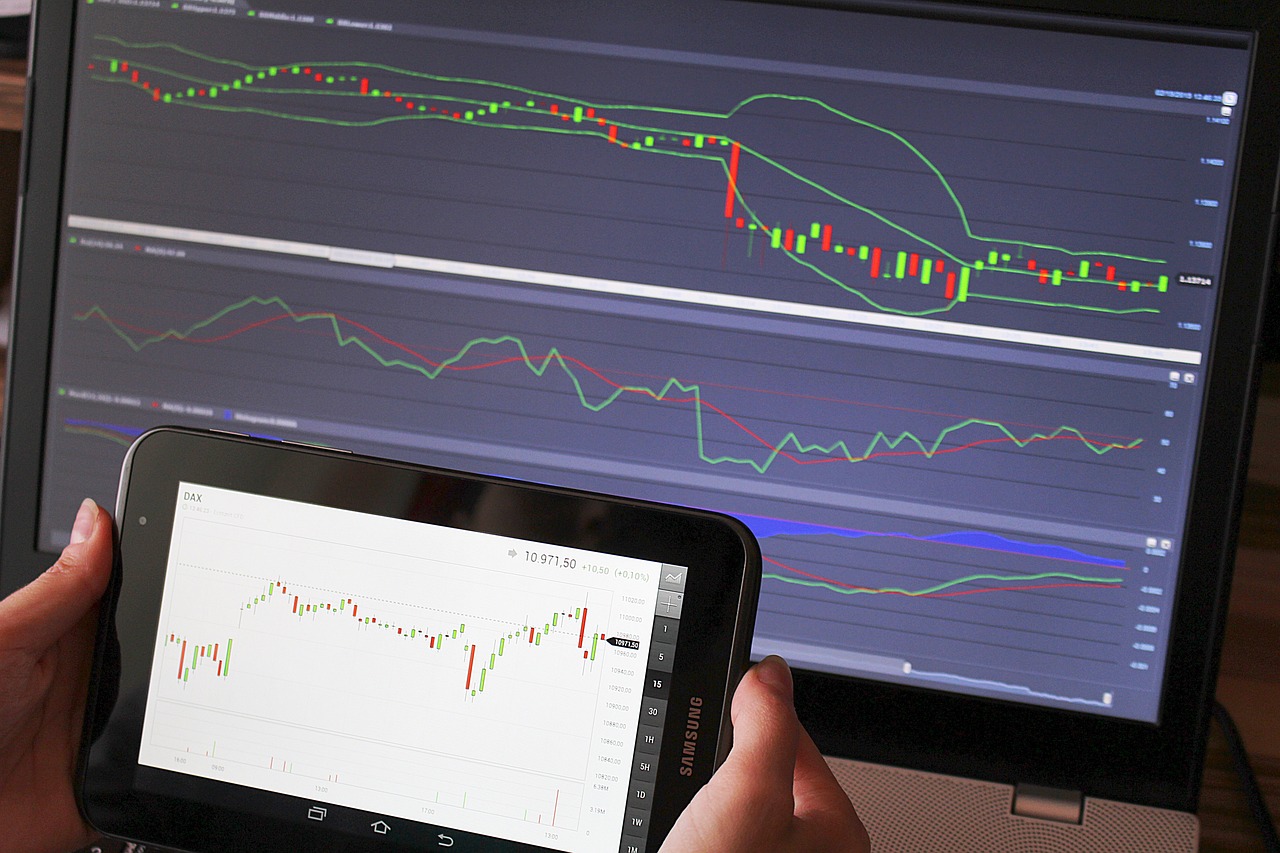
Challenges Faced by DEXs
While decentralized exchanges (DEXs) have revolutionized the way we trade cryptocurrencies, they are not without their challenges. One of the most pressing issues is the liquidity problem. Unlike centralized exchanges, which often have significant liquidity due to their large user bases, DEXs can struggle to attract enough traders to ensure smooth and stable trading. When liquidity is low, traders may find it difficult to execute large orders without causing significant price fluctuations. This situation can lead to a frustrating experience for users, as they may encounter slippage or even be unable to complete transactions at their desired prices.
Another challenge that DEXs face is the increasing regulatory scrutiny from governments and financial authorities around the world. As the cryptocurrency market matures, regulators are becoming more vigilant in their oversight of trading platforms, including DEXs. This scrutiny can manifest in various ways, from compliance requirements to potential bans or restrictions on trading activities. For example, some jurisdictions may require DEXs to implement know-your-customer (KYC) protocols, which could undermine the very essence of decentralization and user anonymity that these platforms aim to provide.
Moreover, the user experience on DEXs can sometimes be less intuitive compared to their centralized counterparts. Many DEXs require users to have a basic understanding of blockchain technology and the use of wallets, which can be a barrier for newcomers. This complexity can lead to mistakes, such as sending funds to the wrong address or mismanaging private keys, which can result in the loss of assets. Hence, while DEXs promote autonomy and control, they also place a greater responsibility on users to manage their own funds securely.
In addition to these challenges, DEXs also grapple with issues related to security vulnerabilities. Although DEXs are generally considered more secure than centralized exchanges due to their non-custodial nature and use of smart contracts, they are not immune to risks. Smart contracts can contain bugs or vulnerabilities that malicious actors can exploit, leading to significant financial losses. Furthermore, the lack of a central authority means that users have limited recourse in the event of a hack or exploit.
To summarize, while decentralized exchanges offer a plethora of benefits, they also face significant challenges that could impact their growth and adoption. Understanding these hurdles is essential for both users and developers as they navigate the evolving landscape of cryptocurrency trading. The future of DEXs will likely depend on how effectively they can address these issues while continuing to provide the advantages that make them appealing in the first place.
- What are the main challenges faced by decentralized exchanges? Decentralized exchanges face challenges such as liquidity issues, regulatory scrutiny, user experience complexity, and security vulnerabilities.
- How does liquidity affect trading on DEXs? Low liquidity can lead to difficulties in executing trades, increased slippage, and price volatility, making it challenging for traders to achieve their desired outcomes.
- Why is regulatory scrutiny a concern for DEXs? As DEXs grow in popularity, they attract the attention of regulators who may impose compliance requirements, potentially undermining the decentralization and anonymity that users value.
- Are DEXs safe to use? DEXs are generally considered safer than centralized exchanges, but they still carry risks, particularly related to security vulnerabilities in smart contracts.
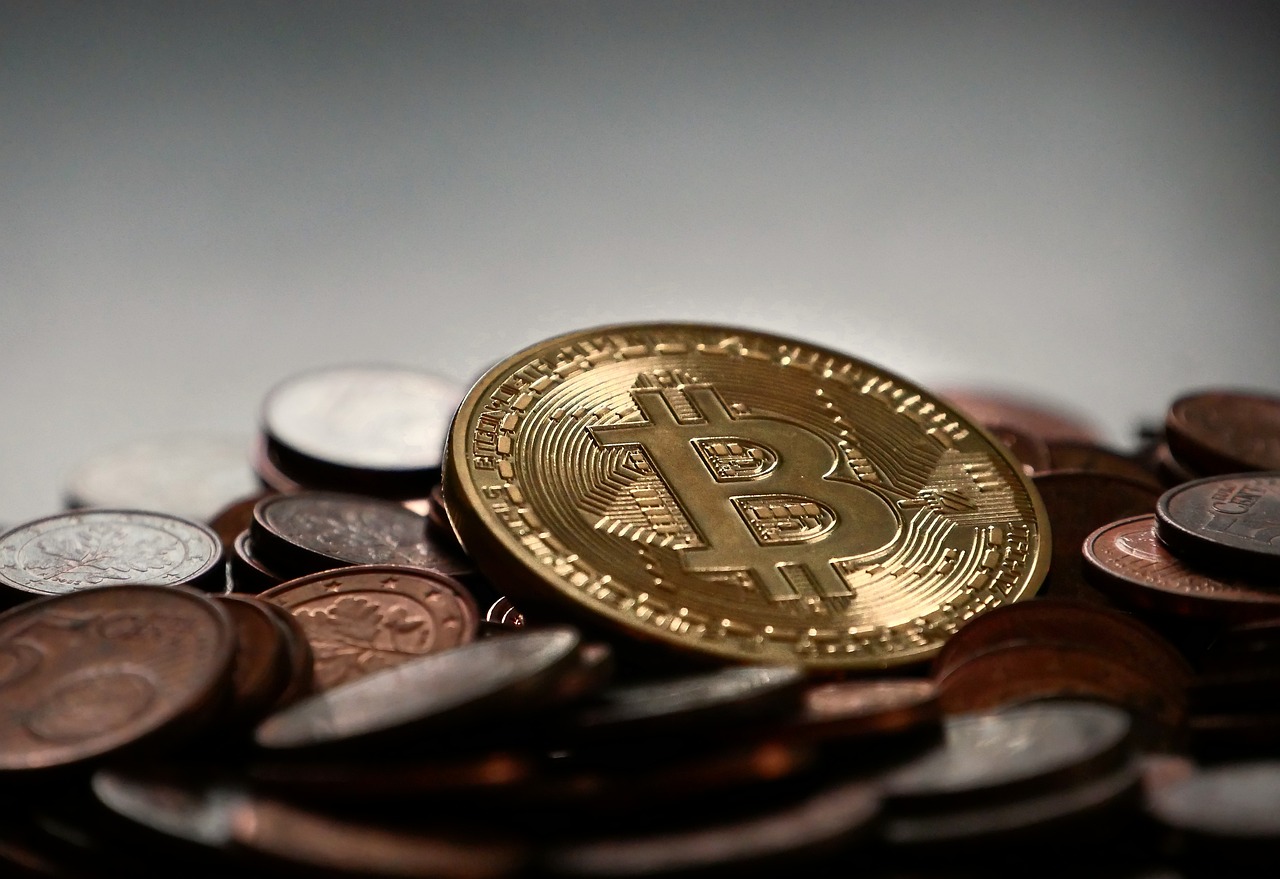
Liquidity Issues
When it comes to decentralized exchanges (DEXs), one of the most pressing challenges they face is liquidity. Imagine trying to buy a popular snack at a convenience store, but the shelves are mostly empty. That’s a bit like trading on a DEX with low liquidity—there may not be enough buyers or sellers to make your trade happen smoothly. In the world of cryptocurrency, liquidity refers to the ease with which an asset can be bought or sold in the market without affecting its price. High liquidity means you can quickly execute trades at stable prices, while low liquidity can lead to slippage, where the price you pay is significantly higher than expected.
Several factors contribute to liquidity issues on DEXs, including:
- Market Depth: DEXs often have fewer market participants compared to centralized exchanges. This can lead to shallow order books, where there aren’t enough buy or sell orders to facilitate large trades without causing significant price changes.
- Asset Variety: While DEXs typically offer a wide range of trading pairs, many of these pairs may not have enough trading volume. This means that even if you find a trading pair you like, it might not be easy to execute your desired trade.
- User Awareness: Many traders are still more familiar with centralized exchanges. As a result, they may hesitate to use DEXs, leading to lower trading volumes and liquidity.
The impact of low liquidity can be profound. For traders, it means they might not be able to buy or sell their assets at the price they want. For investors, it can lead to increased volatility, as even small trades can cause significant price fluctuations. To illustrate this, let's take a look at a simple table comparing the liquidity levels of a centralized exchange versus a decentralized exchange:
| Feature | Centralized Exchange | Decentralized Exchange |
|---|---|---|
| Order Book Depth | High | Variable |
| Trade Execution Speed | Fast | Slower |
| Price Slippage | Low | Higher |
| Market Participants | Many | Fewer |
Despite these challenges, there are ongoing efforts to improve liquidity on DEXs. Innovations such as liquidity pools and automated market makers (AMMs) are helping to create a more robust trading environment. By incentivizing users to provide liquidity, these mechanisms can lead to a more stable trading experience. However, it’s essential for traders to remain aware of the liquidity landscape when engaging with DEXs, as it can significantly affect their trading strategies and outcomes.
Q: What is liquidity in the context of decentralized exchanges?
A: Liquidity refers to how easily an asset can be bought or sold without impacting its price. High liquidity means trades can be executed quickly at stable prices.
Q: Why is liquidity important for traders?
A: Liquidity is crucial because it affects trade execution speed and price stability. Low liquidity can lead to slippage, where the trade price differs from the expected price.
Q: How can DEXs improve liquidity?
A: DEXs can improve liquidity through mechanisms like liquidity pools and automated market makers (AMMs), which incentivize users to contribute their assets for trading.
Q: Are there risks associated with low liquidity on DEXs?
A: Yes, low liquidity can lead to increased volatility and difficulty in executing trades at desired prices, making it essential for traders to be cautious.
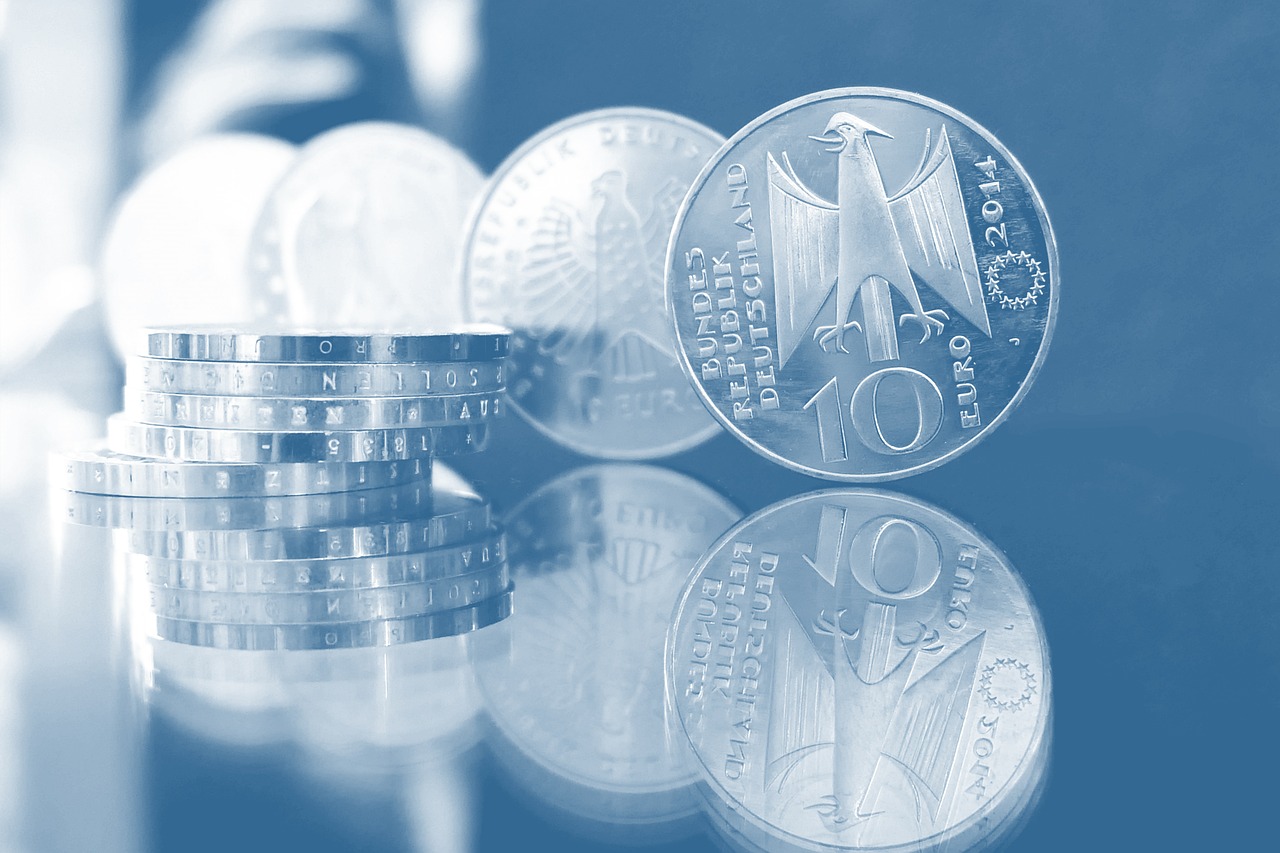
Regulatory Concerns
As the world of decentralized exchanges (DEXs) continues to grow and attract a diverse range of users, it also becomes a focal point for regulatory scrutiny. The very nature of DEXs, which allows users to trade cryptocurrencies directly with one another without a central authority, raises questions about compliance with existing financial regulations. This is a double-edged sword; while DEXs promote user autonomy and financial freedom, they also present unique challenges for regulators who aim to protect investors and maintain market integrity.
One of the primary regulatory concerns revolves around anti-money laundering (AML) and know your customer (KYC) regulations. Traditional exchanges are typically required to verify the identities of their users to prevent illicit activities, such as money laundering and fraud. However, many DEXs operate without these stringent requirements, which can create a loophole for bad actors. This lack of oversight raises alarms among regulators who fear that DEXs could become a haven for illegal transactions.
Moreover, the decentralized nature of these platforms complicates enforcement. Unlike centralized exchanges, where authorities can easily target a single entity, DEXs are spread across a network of nodes, making it challenging to impose regulations or hold anyone accountable. This decentralization is akin to trying to regulate the internet itself—an almost impossible task. As a result, regulators are grappling with how to adapt existing laws to fit this new paradigm without stifling innovation.
Another aspect of regulatory concern is the potential for market manipulation. DEXs often lack the same level of monitoring and oversight that traditional exchanges have. This can lead to scenarios where traders engage in practices like wash trading or pump-and-dump schemes, which can distort market prices. Regulators are increasingly aware of these risks and are exploring ways to implement measures that could enhance transparency and fairness in DEX trading.
To address these challenges, some DEXs are proactively implementing their own measures to enhance compliance and transparency. For instance, they may choose to adopt voluntary KYC processes or implement advanced analytics to monitor trading patterns for suspicious activity. This self-regulation could potentially appease regulators and help legitimize the DEX space, fostering a healthier relationship between decentralized platforms and regulatory bodies.
In conclusion, while DEXs present exciting opportunities for innovation and user empowerment, they also face significant regulatory hurdles. The balance between fostering a free trading environment and ensuring compliance with laws designed to protect users is delicate. As the regulatory landscape evolves, it will be crucial for DEXs to adapt and find ways to operate within these frameworks while maintaining their core principles of decentralization and user control.
- What are decentralized exchanges (DEXs)?
DEXs are platforms that allow users to trade cryptocurrencies directly with one another without the need for a central authority. - What are the main benefits of using DEXs?
Some benefits include enhanced security, privacy, and greater control over funds compared to centralized exchanges. - How do DEXs ensure security?
DEXs utilize smart contracts and non-custodial wallets to provide a safer trading environment for users. - What regulatory challenges do DEXs face?
DEXs face challenges related to anti-money laundering (AML) and know your customer (KYC) regulations, as well as concerns about market manipulation. - Can DEXs comply with regulations?
Yes, some DEXs are implementing their own compliance measures to enhance transparency and build a better relationship with regulators.
Frequently Asked Questions
- What are decentralized exchanges (DEXs)?
Decentralized exchanges (DEXs) are platforms that allow users to trade cryptocurrencies directly with one another without the need for a central authority. This peer-to-peer trading model enhances user autonomy and eliminates the risks associated with centralized exchanges, such as hacks and fund mismanagement.
- How do DEXs enhance security for traders?
DEXs enhance security through the use of smart contracts and non-custodial wallets. Smart contracts automate transactions, ensuring that trades are executed as programmed without the possibility of fraud. Non-custodial wallets allow users to retain full control over their assets, reducing the risk of loss from exchange hacks.
- What are the main benefits of using decentralized exchanges?
Some key benefits of using DEXs include increased privacy, enhanced security, and greater control over funds. Users can trade without revealing their identities, maintain ownership of their assets, and often enjoy lower fees compared to traditional exchanges.
- Can DEXs provide sufficient liquidity for traders?
While DEXs can offer liquidity through various trading pairs, they often face challenges in this area. Factors like lower trading volumes and the absence of market makers can impact liquidity. However, many DEXs are implementing innovative solutions to improve liquidity and trade execution.
- What challenges do decentralized exchanges face?
DEXs encounter several challenges, including regulatory scrutiny and liquidity issues. As they grow in popularity, regulators are increasingly looking to impose rules that could affect how DEXs operate, while liquidity challenges can hinder effective trading and price stability.
- How do smart contracts work on DEXs?
Smart contracts are self-executing contracts with the terms of the agreement directly written into code. On DEXs, they facilitate trades by automatically executing transactions when certain conditions are met, ensuring a trustless environment where users can trade without relying on a central authority.
- What is a non-custodial wallet and why is it important?
A non-custodial wallet is a type of cryptocurrency wallet that gives users complete control over their private keys and funds. This is crucial for DEX users as it minimizes the risk of losing funds due to hacks or mismanagement by a third party, providing a safer trading experience.
- Are DEXs better than centralized exchanges?
It depends on what you're looking for! DEXs offer greater privacy, security, and control over funds, which many users prefer. However, centralized exchanges may provide higher liquidity, faster trade execution, and customer support. It’s all about finding the right fit for your trading needs.


